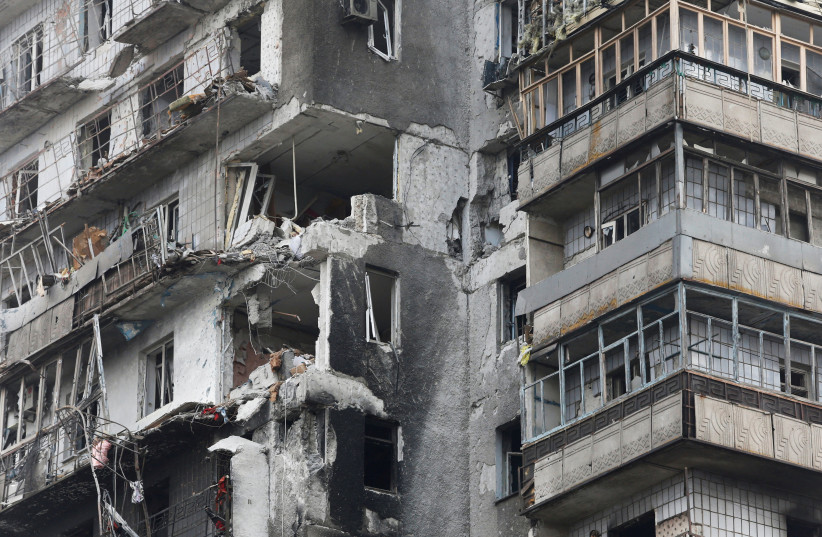Despite the abundance of analyses and opinion articles dealing with the various dimensions and aspects of the Russian war in Ukraine, it is difficult to provide an in-depth and accurate analysis of the impact of this crisis, much of which is not even known yet. Nevertheless, some lessons and conclusions can be drawn from what has happened so far.
The first of these conclusions relates to the absolute reliance of the United States, at least during President Joe Biden’s tenure, on sanctions as a weapon to achieve foreign policy objectives. The US does not engage in military confrontations to defend its strategic interests and certainly not to protect any of its allies.
This matters a great deal to Washington’s allies in the Middle East and in Southeast Asia. Everyone has followed how Washington and NATO have followed the invasion of Ukraine by Russian troops only on the grounds that the alliance is only defending its members.
That means a lot to allies like Taiwan and others, who still believe that a US ally could intervene militarily in their defense in the event of an external threat.
Although the only exception to this generalization might apply to Israel, given the strength of its traditional ties and alliances with the West in general and the US in particular, what happened in Ukraine will be the subject of study and analysis in Israeli institutes of strategic studies. The goal is to find realistic conclusions for Israel’s security in the event of an external threat.

There are important lessons to be learned by everyone from current events to avoid misjudgments and miscalculations.
The second conclusion is to ask about the timing of Ukrainian President Volodymyr Zelensky’s statements that he is ready to make concessions on the issue of the status of Ukraine’s breakaway regions and his willingness to give up the dream of joining NATO in exchange for Russian-American-Turkish security guarantees to preserve Ukraine’s independence and sovereignty.
These statements are understandable, when one considers the reality on the ground, but they are not when it comes to timing. It suggests that the Ukrainian president has recently come to understand that NATO will not go to war in defense of a non-NATO state and that he has misjudged the Russian position.
The third conclusion concerns the United Nations and its institutions, especially the UN Security Council. A group of observers and scholars believe that the fact that the international organization appealed to the Russian government in the name of humanity to stop the war reflects the weakness of its role. Some believe that the postwar order of international relations has collapsed.
But objectivity dictates that the decline of the role of the UN and the Security Council is not new and that it is difficult to blame Russia for it. The issue has a history that everyone knows. The UN has failed to stop wars or even apply international law in many cases over the past decades.
These practices are as old as the repeated calls for reform of the UN and the UN Security Council. Many recall UN Secretary-General Antonio Guterres’ remarks at the 2019 World Economic Forum in Davos, in which he stated that relations between the three main international powers, China, Russia and the US, has “never been as dysfunctional as it is today.”
“We no longer live in a bipolar or unipolar world, but we are not yet in a multipolar world,” he said, “we are in a world in which global challenges are more and more integrated, and the responses are more and more fragmented, and if this is not reversed, it’s a recipe for disaster.”
The disaster seems to be here, as the Ukrainian war has broken out, embroiling all the major powers in a very complex zero-sum confrontation. The debate on the emergence of a new world order has been going on for almost two decades. It has accelerated in the last two years, since the outbreak of COVID-19.
However, what is new is that the discussion is no longer just between the US and China. Russia has entered the multipolar contest with vigor.
Thus, the debate between unipolarity and bipolarity has shifted to a new multipolarity in which the US, China and Russia are the dominant powers and the rise of other international powers, especially Germany, is expected in the foreseeable future. The latter has expressed its intention to regain influence and restore its military power.
Another conclusion concerns the impact of the Ukrainian factor on the geopolitical map in the Middle East. The rapprochement between countries like Turkey and Israel is accelerating. There were signs of this even before the outbreak of the war, but things accelerated on the ground of pragmatic politics that skipped over sensitivities, slogans and ideologies.
Turkey sees a danger in its growing dependence on Russian gas. They see Israeli gas as a more realistic alternative. It also sees the restoration of relations with Israel as a message to the West to prove the sincerity of its intentions to restore its Atlantic relations.
On the other hand, Israel has a vested interest in restoring relations with Turkey, in order to cut its ties with Hamas and others. This in itself is an important addition that reinforces efforts to isolate the so-called resistance organizations that are supported and funded by Iran.
The writer is a UAE political analyst and former Federal National Council candidate.
